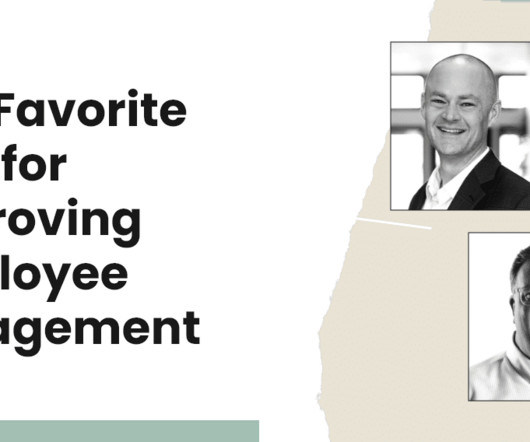The Importance of Running Employee Lifecycle Surveys
DecisionWise
MAY 1, 2025
Onboarding Surveys : Evaluate the onboarding process to ensure new hires are integrated smoothly and receive the necessary training and resources. Career Development These surveys often uncover employees’ aspirations and development needs. Benefits for HR Teams Running Lifecycle Surveys 1.


















Let's personalize your content